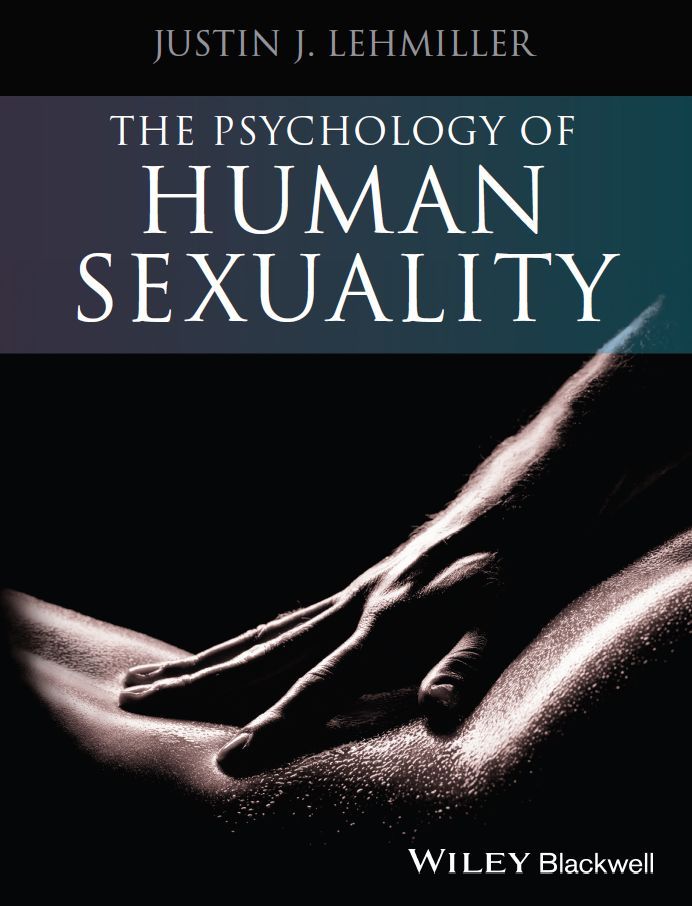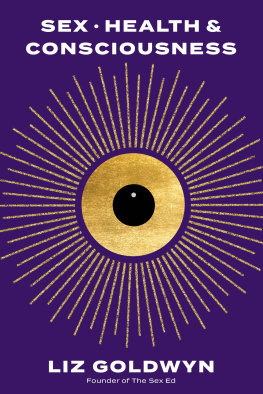

This edition first published 2014
2014 John Wiley & Sons, Ltd
Registered Office
John Wiley & Sons, Ltd, The Atrium, Southern Gate, Chichester, West Sussex, PO19 8SQ, UK
Editorial Offices
350 Main Street, Malden, MA 02148-5020, USA
9600 Garsington Road, Oxford, OX4 2DQ, UK
The Atrium, Southern Gate, Chichester, West Sussex, PO19 8SQ, UK
For details of our global editorial offices, for customer services, and for information about how to apply for permission to reuse the copyright material in this book please see our website at www.wiley.com/wiley-blackwell .
The right of Justin J. Lehmiller to be identified as the author of this work has been asserted in accordance with the UK Copyright, Designs and Patents Act 1988.
All rights reserved. No part of this publication may be reproduced, stored in a retrieval system, or transmitted, in any form or by any means, electronic, mechanical, photocopying, recording or otherwise, except as permitted by the UK Copyright, Designs and Patents Act 1988, without the prior permission of the publisher.
Wiley also publishes its books in a variety of electronic formats. Some content that appears in print may not be available in electronic books.
Designations used by companies to distinguish their products are often claimed as trademarks. All brand names and product names used in this book are trade names, service marks, trademarks or registered trademarks of their respective owners. The publisher is not associated with any product or vendor mentioned in this book.
Limit of Liability/Disclaimer of Warranty: While the publisher and author(s) have used their best efforts in preparing this book, they make no representations or warranties with respect to the accuracy or completeness of the contents of this book and specifically disclaim any implied warranties of merchantability or fitness for a particular purpose. It is sold on the understanding that the publisher is not engaged in rendering professional services and neither the publisher nor the author shall be liable for damages arising herefrom. If professional advice or other expert assistance is required, the services of a competent professional should be sought.
Library of Congress Cataloging-in-Publication Data
Lehmiller, Justin J.
The psychology of human sexuality / Justin J. Lehmiller.
pages cm
Includes bibliographical references and index.
ISBN 978-1-118-35133-8 (cloth) ISBN 978-1-118-35121-5 (pbk.) 1. Sex (Psychology) 2. Sex (Biology) I. Title.
BF692.L435 2014
155.3dc23
2013033147
A catalogue record for this book is available from the British Library.
Cover image: James Cotier / Getty Images
Cover design by Simon Levy Design Associates
About the Author
Justin J. Lehmiller (PhD, Purdue University) is a College Fellow in the Department of Psychology at Harvard University. He has been teaching college-level human sexuality courses for more than 8 years and is an accomplished educator. As a graduate student at Purdue, he received an award for outstanding teaching and, since serving on the faculty at Harvard, was awarded a Certificate of Teaching Excellence.
Dr. Lehmiller is also a prolific scholar, having published more than 25 pieces of scientific writing to date, including articles in some of the leading journals on sex and relationships, such as the Journal of Sex Research and the Journal of Social and Personal Relationships. He conducts research on topics including secret relationships, prejudice and stigma, sexual orientation, safer-sex practices, and friends with benefits. Dr. Lehmillers credentials have made him an internationally recognized expert on sexuality. He is frequently interviewed by and has his research highlighted in news and media outlets, including CNN.com , The Chicago Tribune, The Huffington Post, Mens Health, and The Sunday Times. He writes a popular blog, The Psychology of Human Sexuality, that is updated several times per week and presents the latest research on sex and relationships in a way that is both educational and entertaining. Learn more about Dr. Lehmiller and follow his blog at www.lehmiller.com .
Foreplay
Sex. Almost everyone does it, but almost no one wants to talk about. It is quite the paradox when you consider how vital sex is to human life. Not only is it the act that propels our species forward, but it is also a way to bond with a romantic partner, a way to relieve the stress of daily life, not to mention an enjoyable way to pass the time. Of course, sex is not fun and games all of the time. For some people, sex can be a constant source of anxiety and insecurity, an awkward and embarrassing topic of discussion, not to mention a potential pathway to disease and death. Sex thus has both a light side and a dark side, and each deserves to be acknowledged.
The goal of this book is to give you a better understanding of the ins and outs of sex from a psychological perspective. There are many excellent books out there already that tackle this topic from a largely biological standpoint, and you could certainly learn a lot from reading those texts. However, most of those books give short shrift to the roles that psychology and the social and cultural context play in shaping human sexual behavior. I have used many of these books in previous courses I have taught and have found that students who were majoring in psychology or who took the course because it was advertised as Psychology of Human Sexuality were largely unsatisfied. In fact, the first few times I taught this class, my end-of-semester evaluations looked pretty similar: students commented on how much they loved and enjoyed the course, but wanted to know, Wheres the psychology? Because I was unable to find a book that truly met the needs and desires of my students, I decided to write this one.
Of course, this book will not focus on psychology to the total exclusion of other factors, because that would ultimately do a disservice to readers by providing an utterly imbalanced perspective. I have therefore sought to put psychology front and center throughout, but also to give due consideration to biological, evolutionary, and sociocultural influences on sexuality where relevant. As some of you may recognize, this book mirrors the biopsychosocial perspective adopted in most health psychology textbooks.
When it comes to teaching a sexuality course, my philosphy is to be sex-positive. I have heard people define sex-positive in many different ways, but my personal definition involves: (1) adopting comprehensive and inclusive definitions of gender and sexual orientation, (2) rejecting narrow definitions about what constitutes sex (e.g., the view that only vaginal intercourse counts), (3) giving due consideration to the potential positive and negative consequences of being sexually active, (4) providing students with the information and tools they need to optimize their sexual health and to make healthy decisions, (5) promoting healthy and respectful sexual and romantic relationships, (6) recognizing that monogamy and marriage are not universal relationship goals and ideals, (7) understanding that not everyone is a sexual being and that a lack of sexual desire is not inherently dysfunctional, and (8) respecting people who have different views about sex. I kept this philosophy in mind when writing this book with the goal of making it as inclusive and respectful as possible for a diverse audience.
Next page








